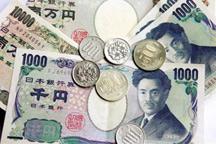Japanese gov't forecasts 1.4% growth this fiscal year

 0 Comment(s)
0 Comment(s) Print
Print E-mail CNTV, January 28, 2014
E-mail CNTV, January 28, 2014
Japan's government says the economy will grow 1.4 percent in the fiscal year that ends in April. That's far lower than the 2.6 percent forecasts for this financial year but stronger than the 0.7 percent growth of fiscal 2012.
A slowdown but not a crash, Japan`s government and the Bank of Japan both forecast 1.4% growth in the year starting April first.
The month will also see the first increase in the sales tax in 17 years. A 2% rise in 1997 killed off consumer spending and sent Japan back into recession. The government is trying to maintain growth this time with a 54 billion dollar supplementary budget but some economists say weak consumer spending may drag growth as low as 0.6% in fiscal 2014.
"I do not think Japanese corporate can increase their labor costs, meaning number of employees and wages by 3% like that. We are expecting maximum 1.5-1.8%. That means real income or real purchasing power of households will deteriorate." said Masami Adachi, Senior Economist, JP Morgan Japan.
In the past Japan exported its way out of recession but Japan`s trade balance has been in the red for a record 18 straight months as soaring fossil fuel costs push up the import bill.
"Even under the depreciation of the currency real exports have not picked up much. In the mean time real imports have been picking up. So if that situation continues and energy policy is unchanged we are likely to see a secular deficit of the current account balance by the end of next year." said Hiromichi Shirakawa, Chief Economist, Credit Suisse Japan.
A sharp slowdown in Japan`s economy may lead voters to question prime minister Shinzo Abe`s revitalization policy, which has so far delivered on its promises of ending deflation and maintaining growth. At the moment a Nikkei newspaper poll shows the public generally supports Abenomics with 54% backing his policy while 30% disapprove.





